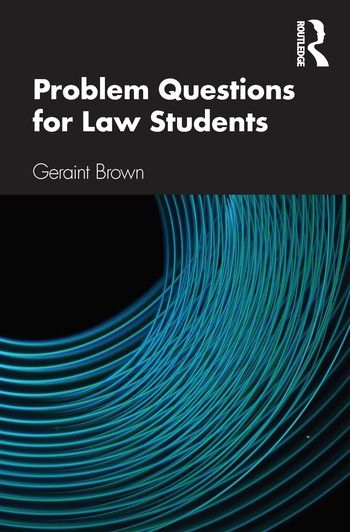
Law students rarely have experience answering problem questions before university, and lecturers concentrate on teaching content rather than the exam skills needed. This book bridges the gap on how to transpose knowledge and research into structured and coherent answers to problem questions while earning a law degree.
Aimed at undergraduates, international students, and foundation and SQE candidates, the book gives a step-by-step study guide on how to navigate what a problem question is asking you to do. It deconstructs the process using examples from a range of different fields of law, providing essential guidance from research and critical thinking to style and tone.
Including a range of examples to test yourself against, this is an indispensable resource for any law student who wants to tackle problem questions with confidence.